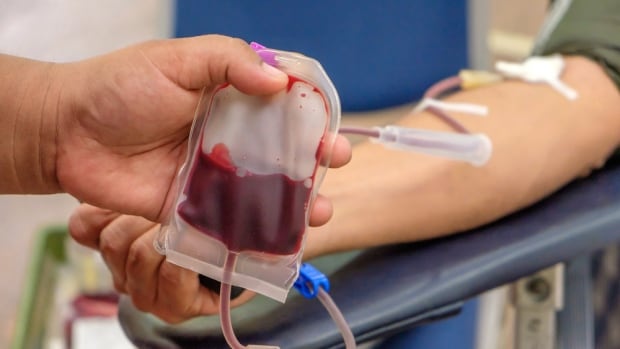Blood
Albertans urged to donate blood after B.C. wildfires force clinic closures
Canada’s blood supply has taken a hit this summer, due in part to B.C. wildfires, and Albertans are being urged to step up and help fill the void.
A number of unprecedented events across the country have resulted in fewer blood donations, during what is already typically a slow season, according to Canadian Blood Services.
“We expected to see lower attendance in the summer months when regular donors take summer vacations, but the extraordinary natural events across the country presented unpredicted challenges for folks from coast to coast,” Ron Vezina, vice-president of public affairs at Canadian Blood Services, said in a news release.
“Between heat waves and forest fires, torrential rains and flash floods, communities are strained, as people cope with the emergencies in front of them. Fewer people have been donating, but despite these circumstances patients continue to need vital donations of blood and plasma.”
According to the organization, more than 300 appointments had to be cancelled in the Kelowna area over the last week.
“We’re looking at 200 – 250 units of blood that need to be found somewhere,” said Shamus Neeson, territory manager with Canadian Blood Services, noting donation centres in both West Kelowna and Armstrong, B.C., were temporarily closed due to the fires.
“Clinics in Calgary and Edmonton — because we are in a major area — need to try not only hit their regular numbers that they’ve got, but also collect extra just to ensure that the patients across Canada that need blood to live … will receive it,” he said in an interview with CBC News.
Between now and Labour Day, 10,000 donation appointments need to be filled across the country, including about a thousand in Alberta, according to Neeson.
Interruptions are problematic because donated blood can only be stored up to 42 days.
Alberta’s mobile blood donation clinics are taking on extra appointments to try and fill the void.
“If this continues we could face a lot more problems because of it in terms of collecting and making sure that patients get the blood they need,” said Neeson.
“Come and donate blood and save someone’s life.”

